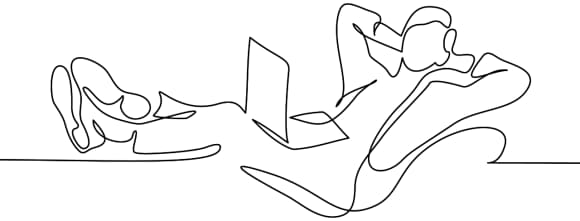Most people would describe a contract as a seemingly endless document filled with language only a lawyer would understand. But Finnish MIT professor Bengt Holmström knows that economists are the ones to talk to when trying to find what makes a good contract in our modern economy. He’s an expert in contract theory but reveals that his field is really about human behavior.

Bengt R. Holmström
Bengt R. Holmström
The Sveriges Riksbank Prize in Economic Sciences in Memory of Alfred Nobel (shared), 2016
At a glance
At a glance
Born: 1949, Helsinki, Finland
Field: Microeconomics
Prize-winning work: Contract theory; theoretical tools to understand real-life contracts and potential pitfalls of contract design
Unresolved matters: Hasn’t decided whether he wants to go back to Finland
one day
Language skills: Is one of few laureates who was able to understand the Nobel ceremony (as Swedish is his mother tongue)
Parents’ hardships: Left his parents wondering if their son was sane when he turned down an offer from Harvard University in the 1980s
What does the future of happiness look like?
What does the future of happiness look like?
Learn more from CIO’s report on the Future of Humans
How can we give the right incentives?
How can we give the right incentives?
Holmström has a beautiful, sunlit office at MIT’s newly refurbished Economics Department. The view is stunning with blue sky and sailboats on Boston’s Charles River. "I was most productive when I didn’t have a window overlooking the river," the professor begins. "I had no window at all, I sat in a small office and there wasn’t much else to do other than work."
The Nobel Laureate points out how every working relationship, in the end, is about the right balance of constraints and incentives. Whether you’re just starting out or are a rising star at the executive level, your employer wants you to act in the company’s best interest. But how can they enforce that? A wonderful view, for example, may cause distraction. "You must be under some pressure to deliver," Holmström explains. But, he adds with a smile, a window isn’t the crucial factor. Other things may be, and they’re part of good contract design that aligns all parties’ interests.
Why money isn’t the most important thing
Why money isn’t the most important thing
You think money’s a driver; people like money. But it turns out it isn’t the only driver by far. You worry about how you’re perceived as an employee. Partly because you know that it’s going to affect your career. But there’s also another component, we want to be liked or appreciated.
How the wrong incentives may lead to betrayal and deception
Has this question inspired you?
Get the latest Nobel perspectives delivered to you.
Wanting to rise to the top, a desire to do well, your supervisor’s compliments, these are the things that motivate people. They are also what lead some people to cross moral boundaries they otherwise wouldn’t, especially when they find they can’t adequately meet expectations anymore. "The story is always about being with the back against the wall, not being able to deliver," he says. "And some people just resolve the issue by crossing the line."
There’s a wide range of things that can go wrong when an incentive scheme isn’t right, he points out. A company’s employees may decide to concentrate on things that are only beneficial in the short-run, or even worse, decide to betray and falsify.
"It’s not really that they’re planning to do something bad,” he says. “These people have morals, their parents have taught them how to behave." But specific targets or objectives connected to bonuses can be a trigger. "We need to be more sensitive about that aspect, and not demand too much," Holmström emphasizes.
We need to be mindful about the potential consequences of pushing people too hard.
Holmström’s Multitask Analysis has shed light on the fact that performance measures are imperfect and that the things hardest to measure may actually carry the most value like reputation, for example. "There are very concrete, easy to measure tasks which can take attention away from reputation," he explains. "But if you have something that’s so important and don’t have a way of putting a number to it, then it may be better not to incentivize the easy to measure tasks or to mute incentives as opposed to creating strong ones."
Old certainties on the decline
Old certainties on the decline
Organizational structures inside firms have been at the center of Holmström’s work. He recognizes that times are changing fast and traditional working relationships may become a thing of the past in the so-called on-demand economy that’s evolving. "How we organize ourselves in this new world, what business models we’re going to create; those things are still to be discovered."
What may happen is that people can rely less on having long-term working relationships. More and more of them will be self-employed, independent contractors with plenty of short-term commitments. They are gaining more independence, but at the same time lose some sort of safety net consisting of things like fixed hours of work and a regular payment.
Can a universal basic income help in times of technological change?
"In times gone by, companies gave us a lot more predictability and a rhythm of life that we got used to. That security is being taken away. And people are having difficulty coping with that in my generation," he says. What’s more, jobs that don’t necessarily require a huge amount of creativity but involve relatively routine tasks may slowly disappear. "Nowadays, computers can answer questions, they can even write articles."
Holmström wonders where the fundamental changes in our working environments will lead. He’s read a lot about recent developments in his native Finland.
Something that’s being tried in Finland is to pay a baseline salary to people and put no constraints on how they can use the rest of their time. You can work on top of that as much as you want.
A universal basic income, no strings attached, paid not only to the unemployed, but to everyone. For now, it’s an experiment with about 2,000 people. But can it be a sustainable system for the future? He isn’t so sure.
A world in which not everyone needs to work
"They’re imagining a world where not everybody has work, or it’s very low-paid work,” he explains. “I’m skeptical because, in my thinking, work is so much more than money." He admits he might be a little old-fashioned and assumes that young generations are more likely to adapt. "I do believe that people will find alternative meanings in life, even if they may just work 15 hours a week."
"We’ve got used to all sorts of things in our lives," Holmström continues. "When horse carriages disappeared, people felt like that’s the end of civilization, and it wasn’t. So if these new generations are born into a society where half of the population doesn’t work, they may just think it’s normal." He knows that young people’s lives are different to their parents’. They aren’t aiming for jobs for life, they’re more flexible and ready to adapt. They don’t live by top-down rules, but by their own.
Reestablishing trust in our democratic institutions
Holmström is very worried about how people today seem to believe the most important issues our world faces can be explained in only 140 characters, and how trust in political representatives is fading. He compares what he sees in our societies today to what he’s been working on in detail. "People are demanding transparency, but they can’t demand transparency about everything and so we have the multitasking problem,” he says. “Your attention is now on the things that they can understand. It’s the equivalent of giving a very powerful incentive on a very narrow task that may be far removed from what’s really important."
Why people choose the leader with simple answers
Has this question inspired you?
Get the latest Nobel perspectives delivered to you.
Young people taking destiny into their own hands
Young people taking destiny into their own hands
How can we restore faith in our democratic institutions? Holmström feels that finding that answer might be the biggest challenge of our time. He hopes young people will start realizing how important democracy is in their lives, rather than taking it for granted.
It used to be that in European countries, when something went wrong, you called for the government to solve your problem. But young people feel like taking their own destiny in their own hands. They don’t want to be dependent on some state.
Can the European youth find a different political agenda?
He doesn’t know where his cherished home country, Europe, or the world for that matter is heading, but even if he has concerns, there are reasons to be optimistic too.
The existential questions raised bring a lot of meaning to life. You have something you have to fight against. There’s no change that doesn’t come with new challenges, but also new solutions and new avenues to grow and fulfill your dreams.
Why do countries have to find better ways to grow?
Hear Michael Spence's view on how countries can grow sustainably while having a long-lasting positive impact.
More Nobel Laureate stories
Has this question inspired you?
Get the latest Nobel Perspectives updates delivered to you.




